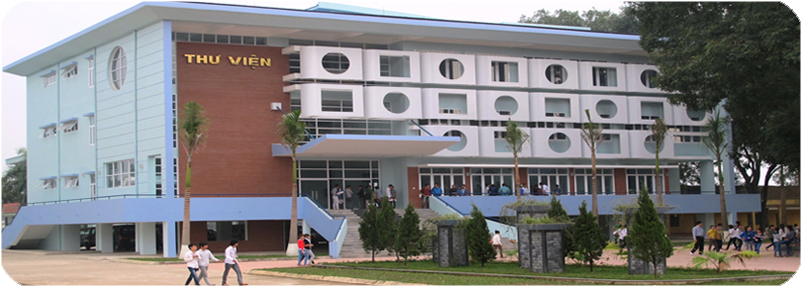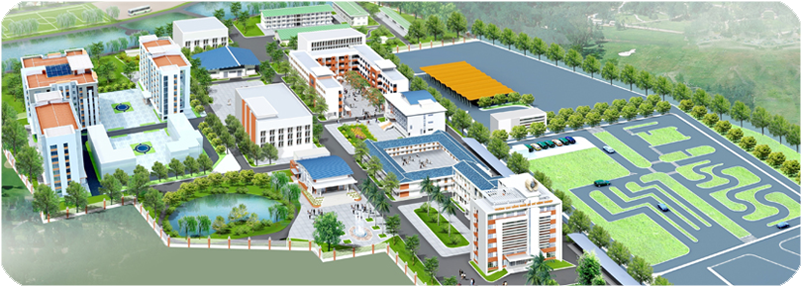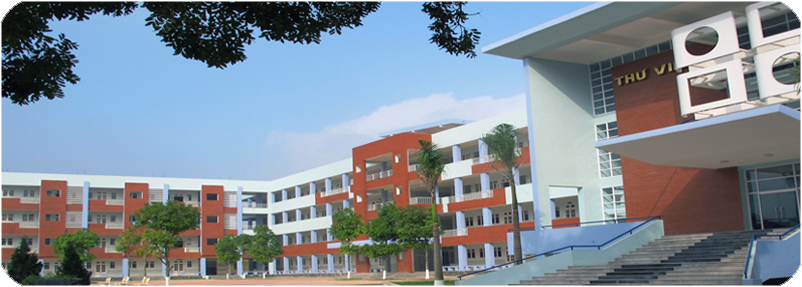Objective - Duties and powers of the school
I. Objective
Striving to build an agricultural mechanic college to become an high-quality vocational college at international-quality, by 2020, being eligible to become a practical technology university, with at least 06 key occupations reaching the grade international level. Training high-tech, multi-level, multi-disciplinary human resources and diversifying training forms. Expanding cooperation, creating strong brands domestically, regionally and internationally.
II. Duties
1. Organizing training of technical human resources directly in production and services at the vocational college, vocational intermediate and vocational primary level. Equipping learners with vocational practical competence commensurate with the level of training, healthy, moral and conscience, sense of discipline and industrial manner. Providing them with the ability to find jobs themselves, to create jobs or to continue their education to higher levels in order to meet the labor market requirements. At the same time, organizing training and retraining of vocational teachers.
2. Organizing of construction and implementing curriculum, syllabus, vocational training materials for the permitted training disciplines.
3. Constructing enrollment plan, organizing vocational training enrollment.
4. Organizing teaching and learning activities, Examinations, tests, graduation recognition, vocational degree,vocational certificate according to the regulations of the Minister of Labor, War Invalids and Social Affairs.
5. Recruiting and managing the teachers, staff of the school in sufficient numbers, suitable to the major, scale and training level as prescribed by law.
6. Organizing scientific research, application of technical advances, technology transfer, production, business and scientific and technical services according to the provisions of law.
7. Vocational studying consultancy, free job advice for apprentices.
8. Organizing for apprentices to visit and practice in enterprises.
9. Coordinating with enterprises, organizations and individuals of apprentices' families in vocational training activities.
10. Organizing for teachers, officials, staff and apprentices to participate in social activities.
11. Implementing of democracy and openness in the implementation of the tasks of vocational training, research and application of science and technology to vocational and financial activities.
12. Bringing the content of language instruction, customs, laws and regulations of the State where the workers come to work and relevant Vietnamese laws in vocational training programs when organizing vocational training for workers working abroad under Regulations of the Ministry of Labor, War Invalids and Social Affairs.
13. Managing, Using the school's land, facilities, equipment and finance in accordance with the law.
14. Implement the regular and irregular reporting regimes as prescribed.
15. Perform other duties as prescribed by law.
III. Powers and responsibilities
1. Being taken initiative in formulating and organizing the implementation of the school development plan suitable to the vocational training development strategy and the plan for development of the vocational college network.
2. Being mobilized, received funding, managed and use resources according to law provisions to carry out vocational training activities.
3. Being decided to establish units attached to the school according to the organizational structure approved in the Regulation on organization and operation of the school, the decision to appoint positions from the Head of Department - Faculty and equivalent or less (including cases of additional approvals).
4. Being set up enterprises and organized production and business services according to the provisions of law.
5. Coordinating with enterprises, production, business and service establishments in vocational training activities, formulating vocational training curricular and syllabuses, Cooperating and associating with domestic and foreign economic, educational and scientific organizations in order to improve the quality of vocational training, associating vocational training with employment and the labor market.
6. Using of revenues from economic activity to invest in the construction of school facilities, expenditure for vocational training activities and supplying the school's financial resources.
7. Being assigned or leased land by the State, received budget support when performing tasks assigned by the State under orders, and enjoyed preferential tax and credit policies according to the provisions of law.
8. Exercising other autonomy as prescribed by law


























